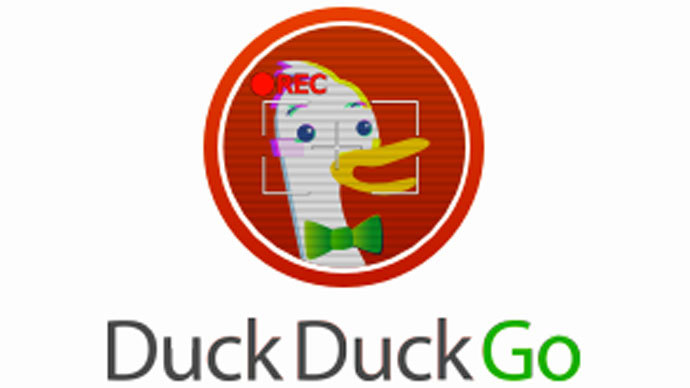An alternative search engine DuckDuckGo has enjoyed a record surge in traffic as NSA scandals spark fears and frighten away Internet users from the more popular Google or Yahoo!.
Over the previous week DuckDuckGo, a private search engine, which claims not to collect users' searches or create any personal user profile, has increased its traffic by 26 per cent and passed 3.1 million of direct queries.
It took 1445 days to get 1M searches, 483 days to get 2M searches, and then just 8 days to pass 3M searches: https://t.co/u4HCuL2e1W
— DuckDuckGo (@duckduckgo) June 18, 2013
A traffic surge hit DuckDuckGo after Edward Snowden’s revelations that NSA
obtained direct access to the systems of Google, Facebook, Apple,
Microsoft, Yahoo and other US technology companies. The scandal
over the US’s PRISM program played into the website’s hands,
before that direct searches were around 1.6 million a day for the
last few months.
However, despite impressive results, DuckDuckGo still cannot
challenge internet search industry giants. For comparison, Google
handles 5,134 million searches a day.
"We always knew people didn't want to be tracked,” said
DuckDuckGo CEO Gabriel Weinberg, who launched the alternative
search engine in 2008, quoted by CNBC. “But what hadn't
happened was reporting on the private alternatives and so it's no
surprise that people are making a choice to switch to things that
that will give them great results and also have real
privacy."
The company pledges not to track users as a search is a unique
browser event, unlike on Google or Yahoo! which aggregate the
data users are looking for and create the so-called “filter
bubble”, to push advertising within search results.
Despite DuckDuckGo claims the search is anonymous, it could still
be tracked, but infiltrators would not be able to get users’ full
profiles.
However, the company said “like anyone else” it “will
comply with court ordered legal requests”, adding that they
“don’t expect any” because “there is nothing useful to
give them.”


